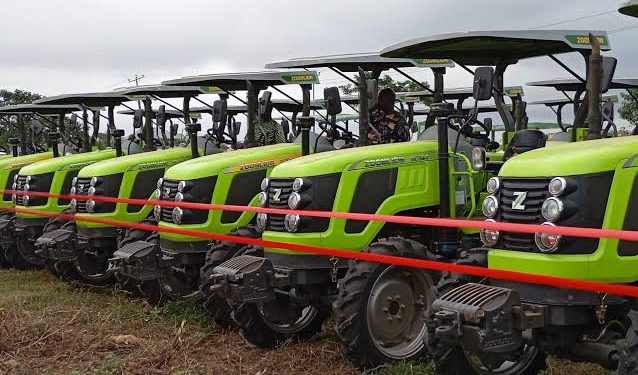The Federal Ministry of Agriculture and Food Security (FMAFS) has launched a training programme for 300 youth from the South South, South East, and South West regions to equip them with skills as tractor operators and mechanics, in a move aimed at advancing mechanized farming and strengthening food security in Nigeria.
The one-week programme, which began on Monday at the Agricultural Mechanics and Machinery Operators Training Centre (AMMOTRAC) in Akure North, Ondo State, is part of the government’s Renewed Hope Agricultural Mechanisation Programme. It focuses on practical training in tractor handling, maintenance, diagnostics, and advanced farming techniques to boost productivity and reduce reliance on traditional farming practices.
Speaking at the event, the agriculture minister said that achieving food security requires Nigeria to transition from subsistence farming to modern, competitive agriculture — a shift that is impossible without mechanization. He pointed out that the southern region, with 70 million hectares of arable land and a favourable climate, holds vast potential not just to feed the country but also to contribute to global food supply. Unlocking that potential, he added, depends on modernizing farming activities and integrating mechanized solutions.
The programme is expected to deliver multiple outcomes, including increased agricultural productivity, reduced dependence on external technical expertise in rural communities, job creation for trained youth, and strengthened national food security.
The ministry’s permanent secretary described the initiative as a strategic investment in human capacity, which he called the most critical factor in transforming the sector. He explained that the training combines theoretical knowledge with hands-on experience, enabling participants to safely and efficiently operate tractors, conduct pre-operation checks, and execute field tasks with precision. Mechanics will learn to diagnose issues, perform maintenance, and carry out repairs, ensuring farm machinery remains in top condition and reducing downtime during key planting and harvest seasons.
He urged participants to take the training seriously, emphasizing that the skills they acquire will not only make them highly employable but also position them to become entrepreneurs providing essential mechanization services to farmers in their communities.
The Ondo State government also welcomed the initiative, describing it as a crucial step toward scaling up mechanized farming in the southern region and a key solution to Nigeria’s persistent food crisis.
For small-scale farmers and agripreneurs, the training signals a future of improved access to mechanization services, potentially lowering costs, expanding cultivated land, and increasing yields vital steps toward building a more resilient and food-secure agricultural sector.










